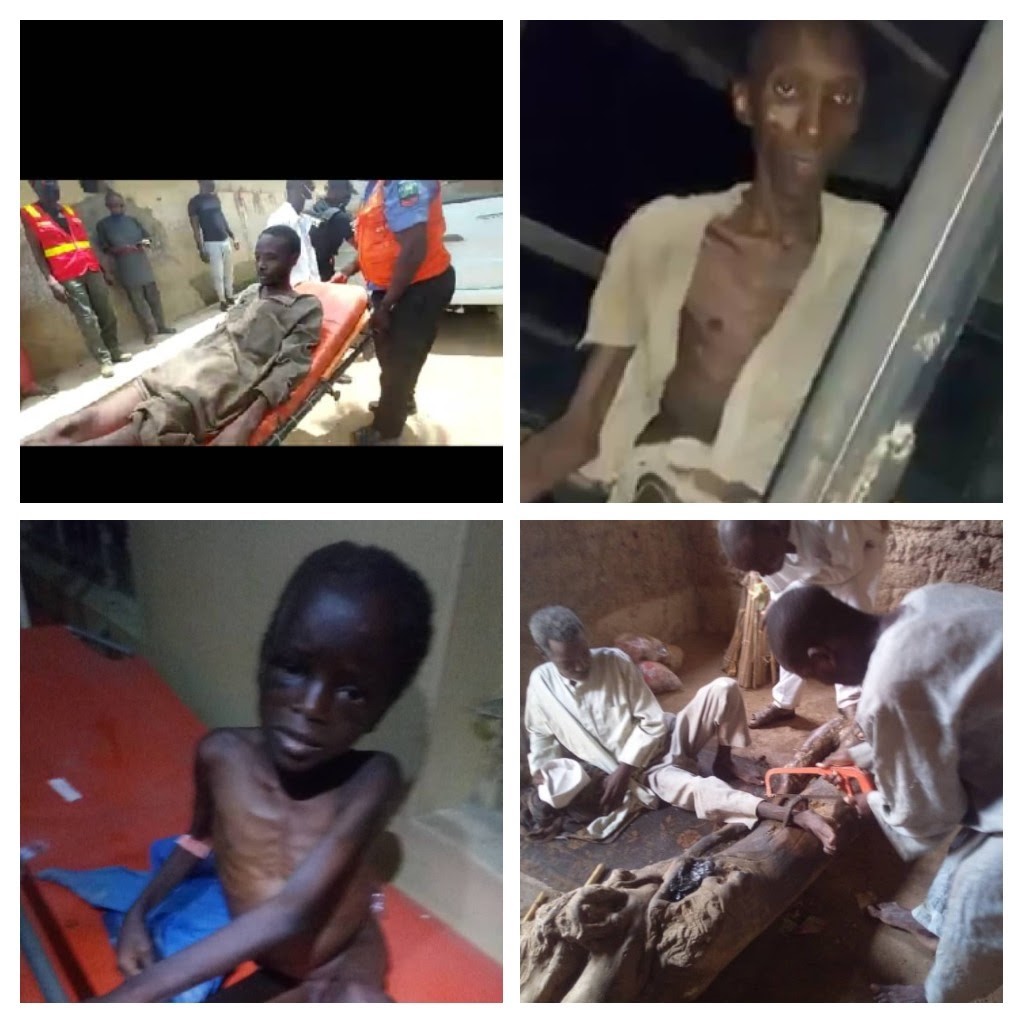Confinement: Fate Of Victims Of Abuse Unclear As Perpetrators Move Freely
In August, news of some persons incarcerated by their families in northwestern Nigeria broke and drew attention to the abuse the individuals were subjected. But while the conditions of the victims are uncertain, their abusers continue to move freely in the community as the relevant agencies that should remedy their situations continue to falter, a HumAngle investigation shows.
HumAngle reported the first case involving Jibrilu Aliyu, a 10-year-old in Kebbi State, who was found chained by his parents for two years in a stall for livestock. The lad was said to be epileptic and the parents felt he needed to be exorcised of the evil spirits that possessed him and so had him live with animals.
Three cases in Kano State involved Ahmad Aminu, a 32-year-old man found locked up for seven years by his father and stepmother on allegation of drug abuse. Thirty-one years old Ibrahim Lawan was incarcerated by his father for 15 years and 55-year-old Murtala Muhammad was locked up in a room for 30 years by his relatives on grounds of mental ill-health.
There was also the case of a six-year-old orphan, Umar Ubale, who was rescued from 12 months confinement by his stepmother.
These cases reported by HumAngle provoked public outrage and led to other reports of inhuman treatment and abuse but Dr Bello Ibrahim, an Associate Professor of Criminology at Bayero University, Kano, said such cases were prevalent but hidden by the people.
He said such acts were not reported because of the nature of the society where people had become individualistic with little regard for communal relationships.
In an interview with HumAngle, Ahmad’s father, Aminu Ibrahim, said “there’s is an improvement on his health, his legs which are cramped are under the medication to assure his movement.
“Ahmad is still battling with psychiatric problems and I have been trying my best taking him to hospital in order to regain his mental health.
“However, we used to push him on a wheelchair to walk with him around as he’s still receiving leg treatment.”
Hajiya Gambo Garba, the Chairman of the Association for Social Vices Prevention in Kano State, said this association was basically on protection of human rights, domestic violence and rehabilitation of children.
“Ahmad spent two months in the hospital and all his medical care was free of charge. The current status of Ahmad’s health is improving, the only challenge he has is lack of unhealthy legs which has been our priority now to consider.
“However, the doctor said he has to undergo an operation after regaining his body and promised to operate the leg free of charge.
“Currently, one leg has recovered, the other one is on treatment also; we are still following up his health status to ensure his full recovery.”
However, Ibrahim, the second reported incarcerated victim, was found to have developed mental illness after he was discharged from Murtala Muhammad General Hospital, Kano, his uncle, Mallam Babba, said.
He said that Ibrahim had been taken to Kano State Psychiatric Hospital, Dawanau, for medical attention and that he was recovering gradually.
CP Habu Ahmad Sani, the Commissioner of Police in Kano State, said: “We are still following up on the health status of the incarcerated victims.
‘However, we are still investigating the matters to know the kind of punishment the court will give the (perpetrators) as the cases have been taken to court.”
The Kano State Commissioner for Women Affairs, Dr Zahra’u Muhammad Umar, had promised that the state government would provide health care, clothes and food items for the victims.
According to Umar, the Kano State Government has provided them with wheelchairs, free health maintenance, foodstuffs, clothes and some money.
“I hosted Ahmad Namama in the hospital for about three months taking care of his health, also the government and other philanthropists provided feeding and shelter as well,” she said.
“After improvement on his health, the court ordered he should be integrated back home; we are monitoring his health currently before we decide on the empowerment the government will offer,'” the commissioner said.
She said that the Human Rights Commission in Kano State was following the case in the court.
Umar added that the government had provided strategies to curb such human rights violations in Kano State.
But in an interview, Haruna Ayagi, the Executive Director, Human Rights Network Nigeria, a Civil Society Organisation, said: “In our own follow-up, there is no improvement concerning the health of the victims from the government and some have developed mental illnesses.
“However, the government is not encouraging us and the abusers are freely moving in the community. There is no positive outcome from our follow-up, there is no support from the local or state level.
“However, our organisation has not enough fund to continue providing support without full encouragement from the government.”
Meanwhile, some residents of communities where the cases were reported, said the exposure of the cases had affected their relationships with the perpetrators of the abuse.
Imrana Usman, a resident of Tudun Fulani Mariri, said, “My relationship with the suspects is minimal.
“However, the government has not punished any of the suspects and we have restricted ourselves from going into the house or engaging with the suspect in the community.”
Support Our Journalism
There are millions of ordinary people affected by conflict in Africa whose stories are missing in the mainstream media. HumAngle is determined to tell those challenging and under-reported stories, hoping that the people impacted by these conflicts will find the safety and security they deserve.
To ensure that we continue to provide public service coverage, we have a small favour to ask you. We want you to be part of our journalistic endeavour by contributing a token to us.
Your donation will further promote a robust, free, and independent media.
Donate Here





